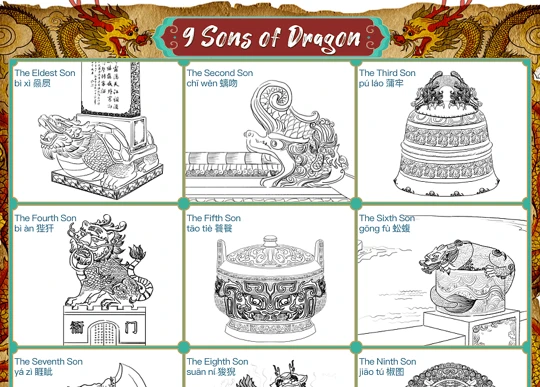Dragons, with their majestic and mythical presence, hold a deep significance in Chinese culture. These legendary creatures are seen as symbols of power, strength, and good fortune. In Chinese mythology, the Four Dragon Kings occupy a prominent position as powerful deities ruling over the seas and waterways. With their unique personalities and extraordinary powers, each Dragon King carries captivating legends within Chinese folklore. Join us on a journey through the rich tapestry of Chinese mythology as we explore the tales of the Four Dragon Kings and unravel the mysteries behind their origins, powers, and interactions with both gods and humans. Discover the fascinating symbolism, legends, and importance associated with these divine beings and gain a deeper understanding of the intricate relationship between dragons and Chinese culture.
Contents
- The Significance of Dragons in Chinese Culture
- The Four Dragon Kings
- Legends and Powers of the Four Dragon Kings
- Origins and Stories Surrounding the Dragon Kings
- Conclusion
-
Frequently Asked Questions
- 1. Are dragons worshipped in Chinese culture?
- 2. What is the role of dragons in Chinese festivals?
- 3. Do Chinese people believe in the existence of dragons?
- 4. Are dragons seen as good or evil in Chinese culture?
- 5. What other mythical creatures are associated with dragons in Chinese culture?
- 6. Are there different types of dragons in Chinese mythology?
- 7. How are dragons depicted in Chinese art?
- 8. Can dragons control the weather in Chinese mythology?
- 9. Are there any famous Chinese legends involving dragons?
- 10. Do other East Asian cultures also revere dragons?
- References
-
Frequently Asked Questions
- 1. How are dragons portrayed in Chinese mythology?
- 2. What is the significance of the Dragon Kings in Chinese culture?
- 3. Who are the Four Dragon Kings in Chinese mythology?
- 4. What are the special powers and domains of the Four Dragon Kings?
- 5. How are the Four Dragon Kings depicted in Chinese art and literature?
- 6. Are the Four Dragon Kings worshipped in Chinese temples?
- 7. Are there any festivals or rituals dedicated to the Four Dragon Kings?
- 8. Is there any connection between the Dragon Kings and Chinese zodiac signs?
- 9. Are there any famous myths or stories about the Four Dragon Kings?
- 10. Are the Four Dragon Kings mentioned in other East Asian mythologies?
- References
- Read More
The Significance of Dragons in Chinese Culture
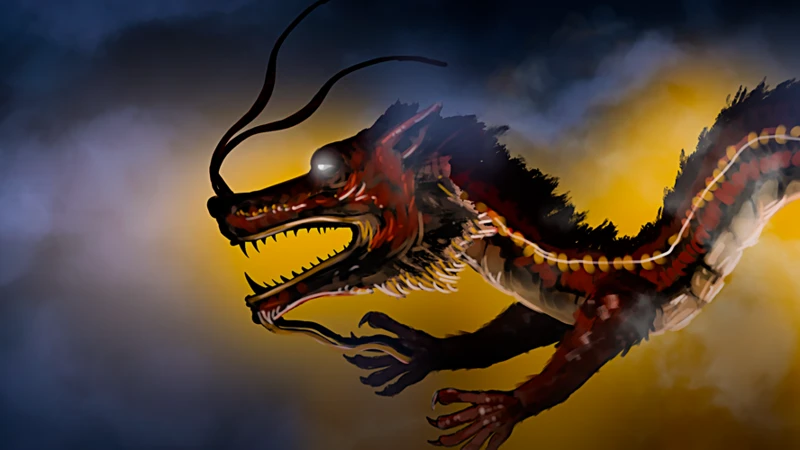
Dragons hold immense significance in Chinese culture, symbolizing power, strength, and good fortune. They are revered as celestial beings, believed to have the ability to bring rain, control water, and ward off evil spirits. Dragons are deeply rooted in Chinese mythology and are often associated with the Emperor, representing imperial authority and prosperity. They are also closely linked to the concept of yin and yang, embodying the balance of opposing forces in nature. The dragon’s presence can be seen in various aspects of Chinese culture, from art and architecture to celebrations and traditional ceremonies. During festive occasions such as Chinese New Year, dragon dances are performed to bring blessings of luck and prosperity to the community. The significance of dragons in Chinese culture is not limited to folklore; their influence extends to various aspects of daily life, showcasing the enduring and multifaceted nature of these legendary creatures.
1. Symbolism of Dragons
Dragons are rich in symbolism within Chinese culture, representing numerous concepts and virtues. One of the key symbols associated with dragons is that of power. Dragons are considered the most powerful of all creatures, capable of manipulating natural elements with their supernatural abilities. Additionally, dragons represent strength and resilience, as they are often depicted as fearsome and indomitable creatures. They also embody wisdom and knowledge, acting as heavenly messengers and guardians of secrets. Dragons are associated with good fortune and prosperity, making them a popular motif in Chinese art, literature, and architecture. The dragon’s serpentine form symbolizes both the yang energy of masculinity and the yin energy of femininity, highlighting the harmony between opposing forces. In Chinese astrology, those born in the Year of the Dragon are believed to inherit the dragon’s positive characteristics – being ambitious, courageous, and full of vitality. The symbolic significance of dragons in Chinese culture is a testament to their enduring popularity and the profound impact they have on various aspects of society.
2. Dragon Kings and Their Importance
The Dragon Kings hold great importance in Chinese mythology and folklore. They are revered as powerful deities who rule over the seas and waterways. Each Dragon King governs a specific cardinal direction and plays a crucial role in maintaining balance and harmony in the natural world. Collectively, they symbolize the authority and control over the forces of nature, particularly water. The Dragon Kings are believed to possess immense powers, including the ability to summon rain, control water currents, and protect sailors. Their influence extends beyond the realm of mythology, as they are also seen as symbols of wealth, prosperity, and abundance. In Chinese culture, the Dragon Kings are often depicted in artworks and sculptures, showcasing their significance and the respect accorded to them. Understanding the importance of the Dragon Kings is essential in grasping the complexities and depth of Chinese mythology and its portrayal of divine beings.
The Four Dragon Kings
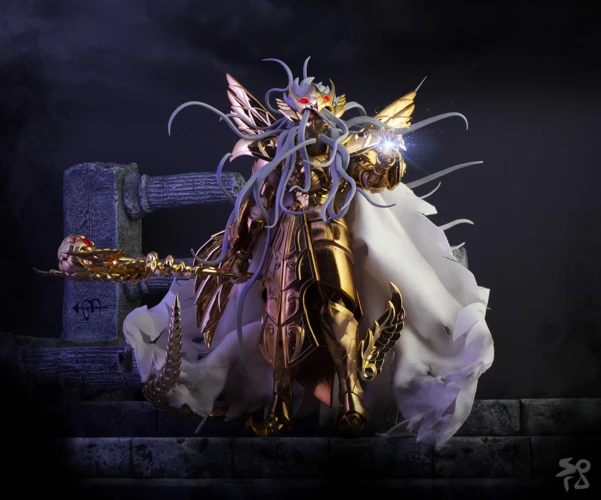
The Four Dragon Kings, known as Ao Guang, Ao Qin, Ao Run, and Ao Shun, hold a significant position in Chinese mythology as the rulers of the seas and waterways. Each Dragon King presides over a specific cardinal direction and embodies unique characteristics. Ao Guang, the Dragon King of the East Sea, represents vigilance and protection. Ao Qin, the Dragon King of the South Sea, is associated with growth and abundance, governing over sea creatures. Ao Run, the Dragon King of the West Sea, symbolizes tranquility and harmony, taking charge of the river systems. Finally, Ao Shun, the Dragon King of the North Sea, is linked to wealth and prosperity. These Dragon Kings are often depicted as mighty and majestic beings with power over the vast waters. They play integral roles in maintaining the balance of nature and have significant interactions with not only other deities but also humans who traverse their realms. The legends and powers associated with each Dragon King highlight their unique contributions to Chinese mythology and reinforce their status as revered divine beings.
1. Ao Guang, Dragon King of the East Sea
Ao Guang, known as the Dragon King of the East Sea, is one of the Four Dragon Kings in Chinese mythology. He rules over the vast expanse of the eastern sea with immense power and authority. Ao Guang is often depicted as a magnificent dragon adorned with shimmering scales and a regal presence. As the East Sea Dragon King, his primary responsibility is to control the rains and waters of his domain. He holds the ability to summon storms and ensure a balance in rainfall, which is crucial for the fertility of the land and the prosperity of the people. Ao Guang’s role as a guardian of water brings stability and abundance to the eastern regions, playing a vital role in maintaining the delicate harmony of nature. According to legends, he resides in an extravagant palace beneath the turbulent waves, surrounded by a loyal entourage of aquatic creatures and sea spirits. While revered for his power, Ao Guang is also known for his unpredictable nature. He can be benevolent and kind but may also display wrath and fierce determination when necessary. With his dominion over the East Sea and control over water, Ao Guang holds a prominent place in Chinese mythology and continues to be celebrated as a symbol of strength and protection.
2. Ao Qin, Dragon King of the South Sea
Ao Qin, the Dragon King of the South Sea, is a prominent figure in Chinese mythology. As the ruler of the southern waters, Ao Qin possesses immense power and influence over the sea creatures that dwell in his realm. Known for his benevolence and wisdom, he ensures harmony and balance within his domain. Ao Qin is often depicted with a magnificent dragon form, adorned with colorful scales and a commanding presence. His role extends beyond the sea, as he is also responsible for controlling the tides and influencing the weather patterns in the southern regions. Legends tell of his ability to summon fierce storms or calm the raging seas with a mere wave of his hand. The people living along the coastal areas attribute their bountiful fishing harvests and safe voyages to the protection and guidance of Ao Qin. His presence in Chinese mythology showcases the reverence and respect given to the forces of nature, and the interconnectedness between humans and the natural world. Explore more mythical figures by diving into the fascinating world of Egyptian religion and mythology.
3. Ao Run, Dragon King of the West Sea
3. Ao Run, Dragon King of the West Sea
Ao Run is known as the Dragon King of the West Sea, ruling over the vast waters of the western region. As one of the Four Dragon Kings, Ao Run is depicted with a powerful and awe-inspiring form, symbolizing his authority over the rivers and lakes in the western part of China. He is often seen carrying a trident, which represents his dominion over the waters and his ability to control the flow of the rivers. Ao Run is responsible for ensuring the balance and harmony of the river systems, providing stability and nourishment to the lands through the controlled flow of water.
Legend has it that Ao Run possesses the ability to manipulate the weather, particularly the rains. It is said that he can summon rainstorms to nourish the lands and ensure a bountiful harvest. His powers to control the flow of water also grant him the ability to prevent floods and droughts, bringing prosperity and abundance to the people living in his realm.
In Chinese mythology, Ao Run is often portrayed as a benevolent and protective deity. He watches over the creatures that inhabit the rivers and lakes, ensuring their well-being and safeguarding their habitats. Ao Run’s influence extends beyond the natural world, as he is also believed to hold sway over human affairs related to water, such as fishing and maritime activities.
The tales of Ao Run and his role as the Dragon King of the West Sea highlight the deep reverence and respect that the Chinese have for water, considering it not only a vital resource but also a force to be revered and celebrated. It reminds us of the interconnectedness between humans and the natural world, emphasizing the need for balance and harmony in our relationship with the elements.
Source: /best-meteor-showers/
4. Ao Shun, Dragon King of the North Sea
Ao Shun, known as the Dragon King of the North Sea, is one of the Four Dragon Kings in Chinese mythology. As the ruler of the northern waters, Ao Shun holds immense power and authority. In Chinese folklore, he is often depicted as a dragon with a fierce and commanding presence. Ao Shun is associated with wealth and prosperity, and his domain is believed to be a source of abundant treasures and riches. He is considered the guardian of the northern sea and its surrounding regions. As the Dragon King of the North Sea, Ao Shun plays a vital role in maintaining balance and harmony in nature. His powers are said to extend to controlling the tides, protecting ships and sailors from harm, and ensuring a bountiful harvest for the coastal communities. Ao Shun’s influence is felt not only in mythology but also in the daily lives of the people, as many seek his blessings for financial success and good fortune. The legends surrounding Ao Shun and his role as the Dragon King of the North Sea add to the mystique and allure of Chinese mythology.
Legends and Powers of the Four Dragon Kings
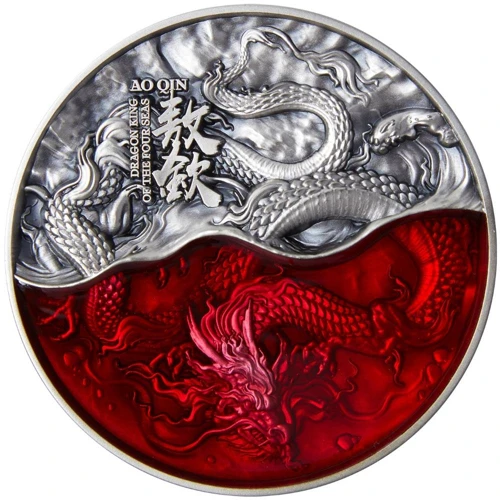
The Four Dragon Kings, known as Ao Guang, Ao Qin, Ao Run, and Ao Shun, are powerful deities within Chinese mythology. Each Dragon King rules over a specific sea or waterway and possesses unique powers and attributes. Ao Guang, the Dragon King of the East Sea, is revered as the guardian of rain and water. He has the ability to summon rainstorms and protect the seas from calamities. Ao Qin, the Dragon King of the South Sea, holds dominion over sea creatures and is believed to have control over tides and ocean currents. Ao Run, the Dragon King of the West Sea, is the protector of river systems. He ensures the smooth flow of rivers and prevents flooding. Finally, Ao Shun, the Dragon King of the North Sea, is associated with wealth and prosperity. It is believed that he safeguards treasures and bestows fortune upon those who worship him fervently. These Dragon Kings are not only revered for their powers but also play pivotal roles in various legends and stories within Chinese folklore. The tales surrounding the Four Dragon Kings showcase their immense strength and divine influence in shaping the natural world and the lives of humans.
1. Ao Guang, Guardian of Rain and Water
Ao Guang, known as the Dragon King of the East Sea, holds the role of being the guardian of rain and water in Chinese mythology. He is depicted as a mighty and wise dragon ruler, residing in a magnificent crystal palace beneath the sea. Ao Guang’s powers encompass the ability to control rainfall and regulate the waters, ensuring a harmonious balance in nature. Legends speak of his involvement in providing much-needed rain during times of drought or redirecting floods to prevent disaster. Ao Guang’s dominion over the East Sea grants him influence over the tides and the creatures that inhabit these waters. As a symbol of abundance and fertility, he is greatly revered by fishermen and seafarers who rely on his blessings for a bountiful catch. During storms, sailors would seek his protection, believing that he could calm the tempestuous seas. In Chinese culture, Ao Guang represents the vital force of water and its role in sustaining life and prosperity, making him an essential figure in the pantheon of Dragon Kings.
2. Ao Qin, Ruler of the Sea Creatures
Ao Qin, one of the Four Dragon Kings, holds the title of the Ruler of the Sea Creatures. As the Dragon King of the South Sea, Ao Qin resides in a magnificent underwater palace where he commands a vast array of sea creatures. Known for his benevolence and compassion, Ao Qin ensures harmony and balance within his domain. His role as the ruler of sea creatures includes overseeing and protecting marine life, from the smallest fish to the mighty sea dragons. Ao Qin is often depicted with a regal presence, adorned with a crown and carrying a magnificent trident, symbolizing his authority over the seas. His benevolent nature extends beyond his aquatic subjects as he also plays a part in maintaining balance in the natural elements, ensuring smooth sailing for sailors and favorable weather conditions for fishermen. The tales of Ao Qin’s majesty and his interactions with humans highlight the reverence and respect given to the Dragon Kings in Chinese mythology. Through his extraordinary powers and connection to the sea, Ao Qin embodies the mystical allure and captivating power of dragons in Chinese culture.
3. Ao Run, Protector of the River Systems
Ao Run, one of the Four Dragon Kings, holds the vital role of being the protector of the river systems in Chinese mythology. As the ruler of the West Sea, Ao Run is responsible for maintaining the harmony and balance of the rivers that flow through the vast landscape. With his powerful influence, he ensures the smooth and steady flow of water, preventing floods and droughts that could bring devastation to the people and their lands. Ao Run’s presence is especially significant in agricultural communities, as the stability of the river systems directly impacts farming and irrigation. The respect and reverence for Ao Run can be seen in rituals and offerings made by those who depend on the rivers for their livelihoods. His role as the protector of the river systems exemplifies the Chinese belief in the interconnectedness of humans and nature, highlighting the reliance on the natural world for sustenance and prosperity. Through his divine power, Ao Run safeguards the rivers, demonstrating the profound role that the Four Dragon Kings play in the balance and preservation of the natural world.
4. Ao Shun, Keeper of Wealth and Prosperity
Ao Shun, the Dragon King of the North Sea, is known as the Keeper of Wealth and Prosperity in Chinese mythology. With his domain in the icy waters of the northern seas, Ao Shun is believed to possess the power to control the distribution of wealth and bring abundance to those who are deserving. It is said that Ao Shun’s underwater palace is filled with treasures beyond imagination, guarded by his loyal army of aquatic creatures. The Dragon King is often depicted wearing a crown adorned with sparkling jewels, representing his royalty and opulence. As the embodiment of prosperity, Ao Shun is revered and worshipped by fishermen, sailors, and those involved in commerce and trade, who seek his blessings for good fortune and success. His influence extends beyond material wealth, as he is also associated with spiritual prosperity and the cultivation of inner riches. In Chinese culture, offerings are made to Ao Shun during festivals and ceremonies, accompanied by prayers for abundance and prosperity. Through his role as the Keeper of Wealth and Prosperity, Ao Shun embodies the aspirations and hopes of many, inspiring a deep reverence for the power of prosperity in Chinese society.
Origins and Stories Surrounding the Dragon Kings
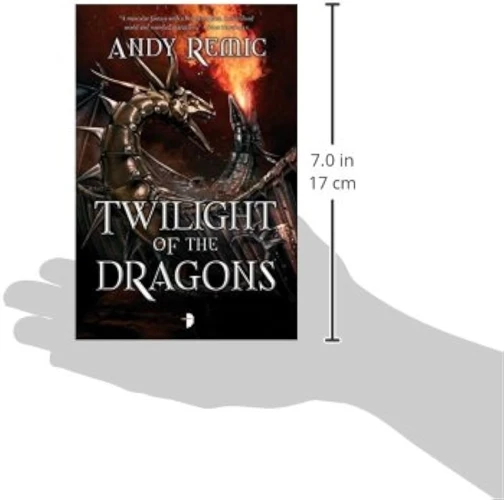
The origins and stories surrounding the Dragon Kings in Chinese mythology are steeped in rich lore and captivating narratives. These divine beings are believed to have mythical origins, tracing back to ancient times. According to legend, the Dragon Kings were originally dragons who possessed extraordinary powers. Through various trials and accomplishments, each dragon ascended to the status of a deity and became the ruler of a specific sea or waterway.
One popular story revolves around the Dragon Kings’ encounter with the legendary Monkey King, Sun Wukong. In the classic Chinese novel “Journey to the West,” Sun Wukong challenges the Dragon Kings’ authority and demands that they yield control of their waters to him. To test Sun Wukong’s strength, the Dragon Kings unleash a series of challenges, including fierce storms and powerful waves. However, the Monkey King overcomes every obstacle, ultimately earning the respect of the Dragon Kings.
Another fascinating tale involves the Dragon Kings’ interactions with the Jade Emperor, the ruler of heaven in Chinese mythology. The Dragon Kings are often called upon to present themselves before the Jade Emperor to report on the conditions of their domains. In some versions, they are depicted as loyal and diligent subordinates, faithfully carrying out their duties. However, other stories portray them as mischievous and proud, occasionally causing trouble or challenging the authority of the Jade Emperor.
The stories surrounding the Dragon Kings highlight their dynamic roles in Chinese mythology, showcasing their interactions with legendary figures and their influence over natural phenomena. These tales not only entertain but also provide valuable insights into the complexities and nuances of Chinese culture and folklore. They offer a glimpse into the profound significance of the Dragon Kings and their enduring presence in the imaginations of the Chinese people.
1. Mythological Origins
The mythological origins of the Four Dragon Kings trace back to ancient Chinese folklore. According to legend, these powerful deities emerged from the primordial chaos known as the “Great Yu,” which existed before the creation of the world as humans know it. The Dragon Kings are believed to be descendants of Longmu, a goddess who transformed into a dragon after consuming a magical pearl and then gave birth to dragons. These divine beings gained their powers from the blessings of the heavens and acquired dominion over different seas and waterways. Their origins showcase the deep connection between dragons and Chinese mythology, highlighting the belief in the interplay between gods and mythical creatures. Through their heritage and divine lineage, the Four Dragon Kings became influential figures within Chinese culture, revered for their immense powers and associations with natural elements. The mythological origins of the Dragon Kings continue to captivate the imaginations of people, adding a layer of enchantment to the rich tapestry of Chinese folklore.
2. The Dragon Kings and their Interaction with Humans
The Dragon Kings, rulers of the seas and waterways, have a complex and intriguing relationship with humans in Chinese mythology. While they are powerful deities, they are not always benevolent towards humans. According to legends, the Dragon Kings can cause storms, floods, and droughts, affecting the lives and livelihoods of people. However, they also possess the ability to bring rain, which is vital for agriculture and sustaining life. As such, humans have sought to appease the Dragon Kings through rituals and offerings, hoping to receive their favor and blessings. In some stories, the Dragon Kings have even taken human form and interacted directly with individuals, offering assistance or testing their character. These interactions often serve as moral lessons, teaching the importance of humility, respect, and harmony with the natural world. As humans navigate the unpredictable forces of nature, the role of the Dragon Kings as both protectors and unpredictable beings continues to fascinate and inspire reverence. Their intricate connection with humans adds depth to the rich tapestry of Chinese mythology and reinforces the notion of human beings as mere mortals subject to the whims of divine beings.
Conclusion
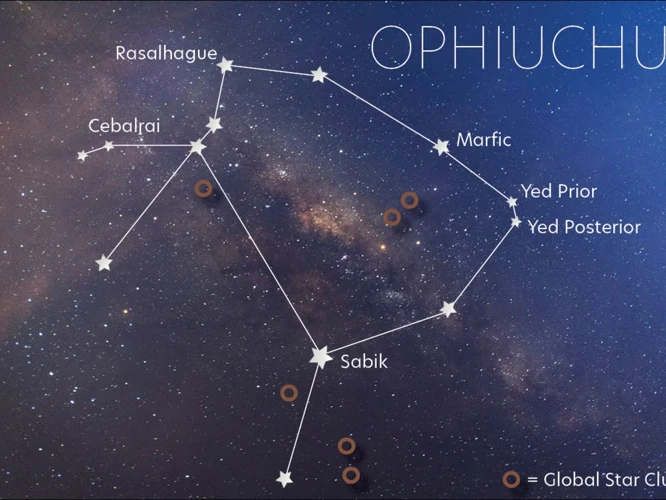
In conclusion, the legends of the Four Dragon Kings in Chinese mythology exemplify the deep-rooted significance of dragons in Chinese culture. These celestial beings, with their immense powers and divine roles, continue to captivate the imagination of people around the world. The symbolism of dragons represents not only power and strength but also prosperity and good fortune. The Four Dragon Kings, Ao Guang, Ao Qin, Ao Run, and Ao Shun, each hold their own unique powers and responsibilities, ruling over the seas, rivers, and wealth. Their legends and interactions with humans add depth and complexity to the stories surrounding them. From being guardians of rain and water to protectors of river systems and rulers of the sea creatures, the Four Dragon Kings play essential roles in the balance and harmony of the natural world. The rich mythology and cultural significance associated with the Four Dragon Kings continue to be celebrated and revered in various aspects of Chinese culture, showcasing the enduring legacy of these mythical creatures. To explore more about the dynamics of other celestial beings in mythology, such as Gemini and Sagittarius, click here.
Frequently Asked Questions

1. Are dragons worshipped in Chinese culture?
While dragons are highly revered and considered auspicious in Chinese culture, they are not worshipped as deities. Instead, they are seen as mythical creatures with symbolic significance.
2. What is the role of dragons in Chinese festivals?
Dragons play a prominent role in Chinese festivals, particularly during events like the Dragon Boat Festival and Chinese New Year. Dragon dances and boat races are performed to bring good luck, fortune, and chase away evil spirits.
3. Do Chinese people believe in the existence of dragons?
Dragons hold a significant place in Chinese mythology, and while some individuals may believe in their existence, dragons are primarily seen as legendary creatures of folklore rather than physical beings.
4. Are dragons seen as good or evil in Chinese culture?
In Chinese culture, dragons are generally seen as benevolent and bringers of good luck. They are associated with power, wisdom, and protection. However, like any powerful entity, dragons also have the potential for destruction if angered or provoked.
5. What other mythical creatures are associated with dragons in Chinese culture?
Other mythical creatures associated with dragons in Chinese culture include phoenixes, which represent rebirth and prosperity, and the qilin, a creature believed to bring serenity and harmony.
6. Are there different types of dragons in Chinese mythology?
Yes, Chinese mythology features different types of dragons, each with unique characteristics and symbolism. These include celestial dragons, spiritual dragons, and earth dragons.
7. How are dragons depicted in Chinese art?
Dragons are commonly depicted in Chinese art as long, serpentine creatures with scaled bodies, horns, and whiskers. They are often portrayed in vibrant colors, symbolizing their grandeur and importance.
8. Can dragons control the weather in Chinese mythology?
Yes, dragons in Chinese mythology are believed to have control over weather phenomena, particularly rain and water. They are seen as bringers of much-needed rain for agricultural purposes.
9. Are there any famous Chinese legends involving dragons?
Yes, there are many famous Chinese legends involving dragons. One popular legend is the Tale of the White Snake, which tells the story of a human and a powerful snake spirit who transforms into a dragon.
10. Do other East Asian cultures also revere dragons?
Yes, dragons are revered in various East Asian cultures, including Japanese and Korean. While there are similarities in their depictions and symbolism, each culture has its own unique interpretations and beliefs surrounding dragons.
References
- Longwang : The Dragon King
- The Myth of Long Wang, the Chinese Dragon King
- Dragon Kings of Mythistory
Frequently Asked Questions

1. How are dragons portrayed in Chinese mythology?
In Chinese mythology, dragons are portrayed as powerful and benevolent creatures. They are often associated with water, rain, and prosperity, and are revered as symbols of good fortune and auspiciousness.
2. What is the significance of the Dragon Kings in Chinese culture?
The Dragon Kings hold a special place in Chinese culture. They are revered as divine beings who have control over natural forces such as rain, rivers, and seas. They are believed to bring blessings and protection to their respective domains.
3. Who are the Four Dragon Kings in Chinese mythology?
The Four Dragon Kings are believed to be the rulers of the four seas in China. They are Ao Guang, the Dragon King of the East Sea; Ao Qin, the Dragon King of the South Sea; Ao Run, the Dragon King of the West Sea; and Ao Shun, the Dragon King of the North Sea.
4. What are the special powers and domains of the Four Dragon Kings?
Ao Guang is the Guardian of Rain and Water, Ao Qin is the Ruler of the Sea Creatures, Ao Run is the Protector of the River Systems, and Ao Shun is the Keeper of Wealth and Prosperity.
5. How are the Four Dragon Kings depicted in Chinese art and literature?
The Four Dragon Kings are often depicted as majestic and fearsome creatures, with colorful scales and powerful bodies. They are frequently shown in artworks and featured in ancient Chinese literature, where they play pivotal roles in various myths and legends.
6. Are the Four Dragon Kings worshipped in Chinese temples?
Yes, the Four Dragon Kings are worshipped in many Chinese temples. People pray to them for blessings, especially related to rain for agricultural purposes, safe voyages at sea, and general prosperity.
7. Are there any festivals or rituals dedicated to the Four Dragon Kings?
Yes, there are festivals and rituals dedicated to the Four Dragon Kings. One of the most famous is the Dragon Boat Festival, where dragon boat races are held to pay homage to the Dragon Kings and seek their blessings.
8. Is there any connection between the Dragon Kings and Chinese zodiac signs?
While there is no direct connection between the Dragon Kings and Chinese zodiac signs, dragons are one of the 12 animals in the Chinese zodiac. The dragon is considered a highly auspicious and powerful sign, symbolizing strength, nobility, and success.
9. Are there any famous myths or stories about the Four Dragon Kings?
Yes, there are several famous myths and stories about the Four Dragon Kings. One such story is the tale of how they helped the Buddhist monk Xuanzang in his journey to the West to obtain sacred scriptures. They provided him with guidance and protection throughout his perilous adventure.
10. Are the Four Dragon Kings mentioned in other East Asian mythologies?
Yes, similar four Dragon Kings are also mentioned in other East Asian mythologies such as Japanese and Korean mythology. They may have different names but hold similar roles and significance as divine rulers of the seas and natural forces.

